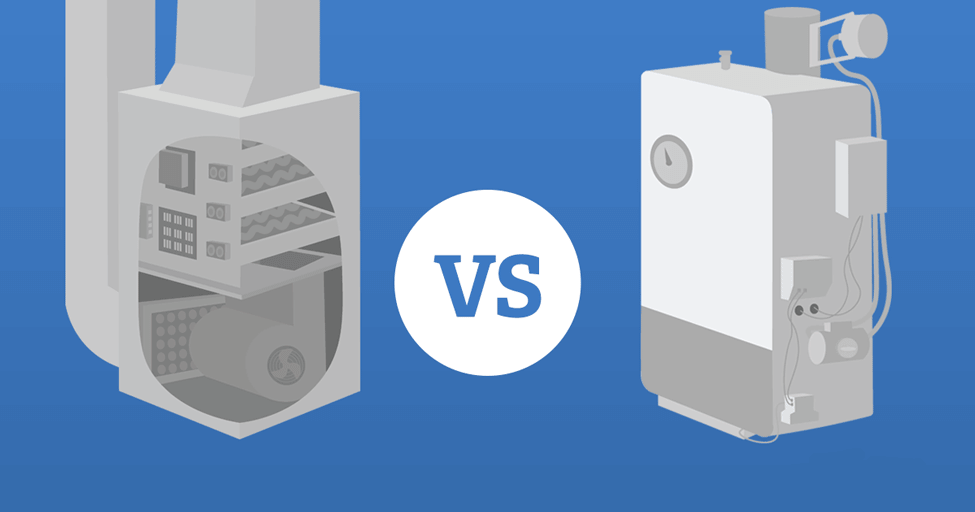Electric Furnace vs Gas Furnace: Which is Better?
Electric vs. Gas Furnace: Which is Better for Vancouver, WA, and Portland, OR?
Hello to all our readers in Vancouver, WA, and Portland, OR! As winter approaches, everyone begins to wonder about the best heating solutions for their homes. A big question that pops up is: "Is my furnace gas or electric?" Let's dive into the electric furnace vs. gas furnace debate to see which might be the right choice for you and your forced air system.
Understanding Your Heating Options
Pros and Cons
Electric Furnace
Pros:
Safety: Electric furnaces offer safe home heating without risks like gas leaks.
Clean and Eco-friendly: No fumes mean a cleaner, eco-friendly furnace.
Installation: Electric furnace installation can be simpler due to their size and design.
Lifespan: With proper furnace maintenance, these can last over 20 years.
Cons:
Speed of Heating: Electric furnaces might take longer to provide warm air compared to gas furnaces.
Cost: Electric heating might not be as cost-effective as gas in some areas, leading to potentially higher energy bills.
Energy Efficiency: While modern electric furnaces can be efficient, gas furnaces often have an edge in terms of energy efficiency.
Intensity of Heat: Electric furnaces might not provide the "warmer" more intense heat that some people prefer during colder months.
Gas Furnace
Natural gas heating is another popular choice, especially in our Vancouver WA and Portland OR furnace choices. Gas furnaces require the use of gas with a gas line. If your unit is functioning you will see a blue flame.
Pros:
Cost-Effectiveness: Gas can often be a more affordable energy source, leading to lower energy bills.
Quick and Cozy: Provides warm air faster than most electric furnaces.
Efficiency: Often have a higher Annual Fuel Utilization Efficiency.
Cons:
Safety Concerns: There's a risk of gas leaks which can be hazardous.
Installation Cost: Gas furnaces might have a higher initial installation cost due to the need for a heat exchanger and other components.
Eco-friendliness: Gas furnaces produce fumes, making them less eco-friendly compared to electric furnaces.
Maintenance: Gas furnaces might require more rigorous maintenance to ensure safety
Which is More Energy-Efficient?
When it comes to energy-efficient heating, gas furnaces often have an edge. The Department of Energy notes that modern gas heating options are incredibly efficient. However, electric furnaces can also provide substantial energy savings, especially if they're modern models. Always check with HVAC professionals when considering a new installation.
What to Consider?
1. Installation Cost: Gas furnaces might have a higher initial installation cost due to the need for a heat exchanger and other components.
2. Heating and Cooling: Some systems can handle both heating and cooling. This could influence your type of heating choice. Often people enjoy the gas heating benefits in winter as it's considered a "warmer" more intense heat.
3. Maintenance: All home heating systems require maintenance. Regular air filter changes and professional furnace inspection can ensure longevity.
4. Indoor Heating Safety: While electric furnaces are generally safer due to no risk of gas leaks, modern gas furnaces with proper maintenance also provide safe operation.
5. Utility Costs: It's important to do a heating costs comparison to determine which will save you more money on utility bills. This comes down to heat efficiency of the heating unit.
6. Furnace Lifespan: Lifespan of the unit will vary by brand and based on the efficiency of the unit. Make sure to look into the furnace lifespan as you invest in a heating unit.
Decoding Your Furnace
If you’re wondering, “Is my furnace gas or electric?”, here's a tip: Look around your furnace. Gas furnaces typically have a pipe indicating a gas connection, while electric ones have wires.
Eco-Friendly and Energy Bills
Eco-friendly furnaces are in demand as everyone's looking to save on energy bills. Electric furnaces are cleaner, but if you're seeking the most energy-efficient option, look at the Annual Fuel Utilization Efficiency of the furnace.
Making the Choice: Vancouver WA Heating Options
When comparing heating costs, gas vs electric furnace, remember it’s not just about the bills. It’s about comfort, eco-friendliness, and how it heats your home. Whether you lean toward electricity-powered heating or natural gas heating, always consult with HVAC professionals. Both have their unique benefits.
Final Thoughts: Making an Informed Choice
Choosing between an electric and gas furnace isn't just a matter of selecting a unit to keep your home warm during the cold months; it's about making an informed choice that caters to both your immediate comfort and long-term needs. In Vancouver, WA, and Portland, OR, where winters can be quite chilly, understanding the deeper aspects of heating solutions is pivotal.
1. Consider Your Home and Environment
Every home is unique. The size of your home, its insulation, and even its location within Vancouver or Portland can affect how well a furnace works. Electric furnaces might heat smaller spaces more efficiently, while larger homes might benefit from the robust warmth of a gas furnace.
Moreover, consider the availability of natural gas in your locality. Some areas might have limited access or higher prices, making electric furnaces more appealing.
2. Long-Term Benefits and Costs
When pondering the electric furnace vs. gas furnace dilemma, think beyond the immediate heating bills comparison. Gas furnaces, while often having higher installation costs, might offer savings in the long run due to cheaper fuel source costs. On the other hand, electric furnaces, with their longer lifespan, could mean savings on replacement and major repair costs over the years.
3. Environmentally Conscious Choices
Our responsibility to the planet cannot be ignored. For those leaning towards eco-friendly furnaces, it's vital to weigh the environmental impact of your chosen energy source. While electric furnaces don't emit combustion-related pollutants in the home, the source of electricity (e.g., coal, wind, solar) can influence its environmental footprint. Natural gas is cleaner than other fossil fuels but still contributes to greenhouse gas emissions.
4. Home Safety and Comfort
Indoor heating safety should always be a top priority. Families with children or pets might lean towards electric furnaces due to the absence of potential gas leaks. However, modern gas furnaces equipped with advanced safety features, when regularly inspected by HVAC professionals, are also an extremely safe option.
Remember, the feel of the warm air from the furnace can be different too. Some people prefer the moist heat of a gas furnace over the drier warmth of electric models. It's essential to consider your family's comfort preferences.
5. Future-Proofing Your Heating
As technology advances, so do furnace models. Electric furnaces might see more rapid advancements in energy savings due to the push for greener energy solutions. Meanwhile, gas furnaces also continue to evolve in efficiency and eco-friendliness. When making your choice, consider how easily you could upgrade or adapt the furnace to future advancements.
6. Consultation with Experts
While research is crucial, consulting with HVAC professionals, especially those familiar with Vancouver and Portland's climate and energy landscape, is invaluable. A professional can provide insights on the annual fuel utilization efficiency of different models, potential energy savings, available rebates and even tips on maintaining a furnace for maximum lifespan.
7. Beyond the Furnace
Lastly, remember that a furnace is part of a larger home ecosystem. Ensuring your home is well-insulated, having regularly replaced air filters, and integrating your furnace with a comprehensive heating and cooling system can optimize energy efficiency and comfort.
In the end, whether you find yourself gravitating towards electric or gas heating, making an informed choice ensures not only a warm home but peace of mind. Both furnace types have their distinct advantages, and with proper care and regular maintenance, can be a valuable asset to your home for years.
As the cold months approach, let this be an opportunity to not only gear up against the cold but to make a choice that aligns with your values, budget, and comfort. Whatever you decide, know that you're making a choice that will bring warmth and comfort to countless chilly nights ahead in Vancouver and Portland.

